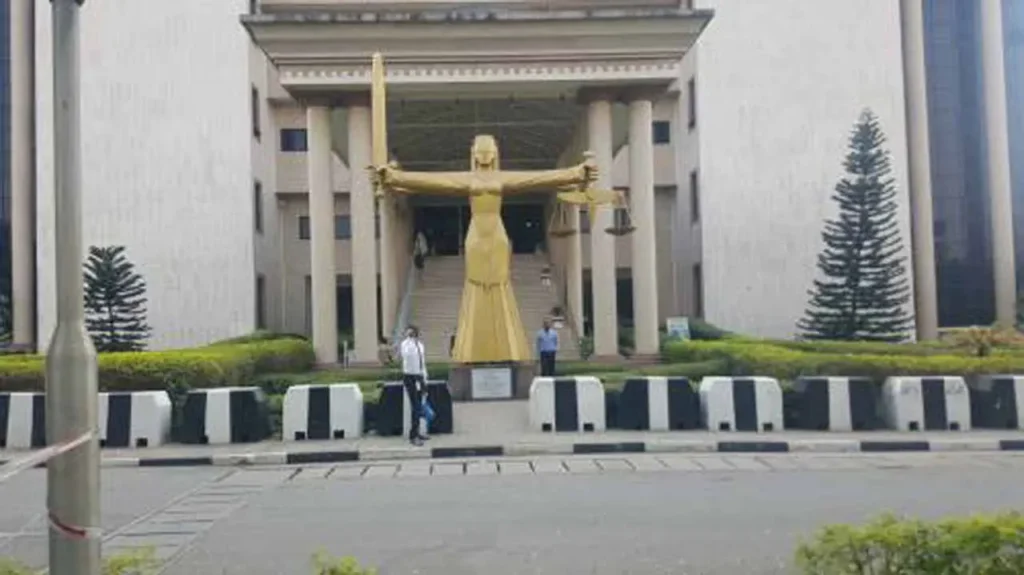A date has been fixed by the Federal High Court, Abuja Division to rule on adoption of final addresses on the constitution of Transition Committees in Akwa Ibom State.
In the suit by a legal practitioner, Uyoakam Ekerete, as plaintiff, the court fixed Monday, 29 April, 2024 for adoption of addresses.
Recall that the Akwa Ibom State Government on 6 December, 2023 constituted Transition Committees for 31 local government councils in the state in place of democratically elected Local Government Councils as provided under Section 7(1)(4) of the Constitution.
The setting up of the Transition Committees resulted in the institution of the instant suit on 14 December, 2023 by the Plaintiff at the Federal High Court, Abuja.
Also read
- Lawyer Drags FAAC, others to Court over Transition Committees in Akwa Ibom
- Chinese to die by hanging for murder- Court rules
- Supreme Court Spares six Nigerian governors in its final verdicts
The Plaintiff in the suit is praying the court to determine “Whether in the light of Section 7(1) of the 1999 Constitution (as amended), the State Governor in the absence of any emergency in the State, has powers under Section 5(2) of the Akwa Ibom State Local Government (Administration) Law, 2017 to appoint and constitute Transition Committees for the 31 Local Government Councils in the state in violation of the Plaintiff’s right to vote or be voted for in an election to his Local Government Council in the State; and as well determine “Whether the Local Government Councils whose system of government by democratic election is guaranteed in Section 7(1)(4) of the 1999 Constitution (as amended) is one and the same Local Government Councils referred to in Sections 7(6)(a) and 162(5) of the same Constitution”?
Upon being served, the 4th to 6th Defendants in the suit filed their respective Counter Affidavits as well as Notices of Preliminary Objection challenging the jurisdiction of the Court to entertain the suit.
In their various addresses, the objectors contended that the Plaintiff does not have the locus standi to institute the action and moreover, that the Federal High Court is not the proper court to adjudicate on the suit whose subject-matter, they stated, is the violation of the Plaintiff’s right to participate in a democratic election to his Local Government Council.
Responding, the Plaintiff argued that as a registered voter, his constitutional right to participate in a democratic election to his Local Government Council has been violated by the setting up of the Transition Committees instead of democratically elected Local Government Councils.
The Plaintiff contended that in line with the legal maxim “ubi jus, ubi remedium” he is amply clothed with the legal capacity to seek redress for the violations, whether or not other registered voters in the State have decided to waive their rights. The Plaintiff submitted that in that connection, he has the locus standi to institute the action.
The Plaintiff further argued that the subject matter of the suit is not merely the violation of his right to participate in a democratic election.
He contended that the suit also challenges the constitutionality of the allocation of revenue from the Federation Account to the Transition Committees, being the by-product of the violation of the Plaintiff’s constitutional rights, and which Committees, the Plaintiff argued, do not have the electoral mandate referenced under Section 7(1)(4) of the Constitution.
To the extent as canvassed above, the Plaintiff argued that the Federal High Court has jurisdiction under Section 251(1) (p)(q)(r) of the Constitution to determine whether the 1st to 3rd Defendants, namely, Revenue Mobilization Allocation and Fiscal Commission (RMAFC), Federation Accounts Allocation Committee(FAAC) and the Accountant General of the Federation respectively, as agencies of the Federal Government, managing the Federation Account, are constitutionally justified in their decision to continue to allocate revenue from the Federation Account to the Transition Committees which is not one of the beneficiaries of the Account under Section 162(5) of the Constitution.
The Plaintiff in the Originating Summons is alleging that the setting up of the Transition Committees at the expiration of the last tenure of democratically elected Local Government Councils in the State is in violation of his right to vote and be voted for in an election to his Local Government Council.
He described the Transition Committees as an illegality, which do not have the electoral mandate of the people to administer the local government councils using the funds from the Federation Account established by the same Constitution which recognizes democratic election as the only means of legitimizing government at the local government councils.
All relevant processes in the suit have been filed and exchanged.
The matter is fixed for the 29 April, 2024 for adoption of all final addresses in respect of both the Notices of Preliminary Objection and the substantive suit.

